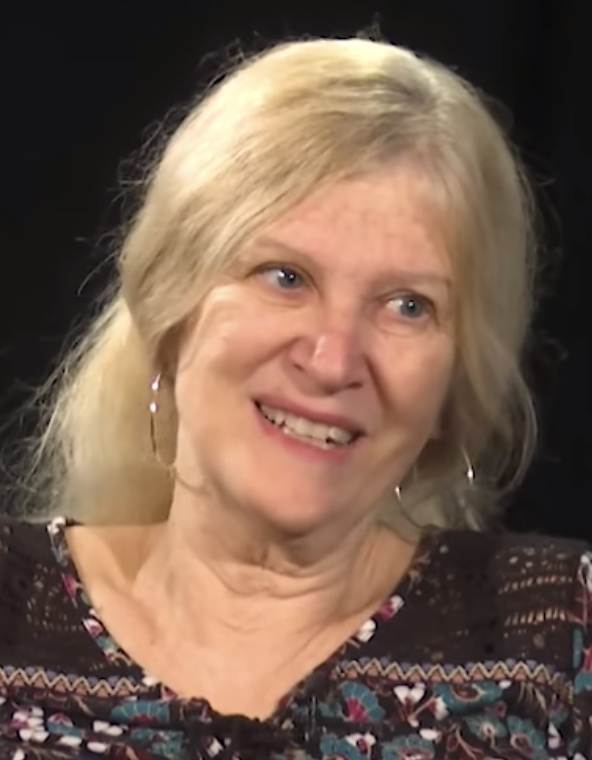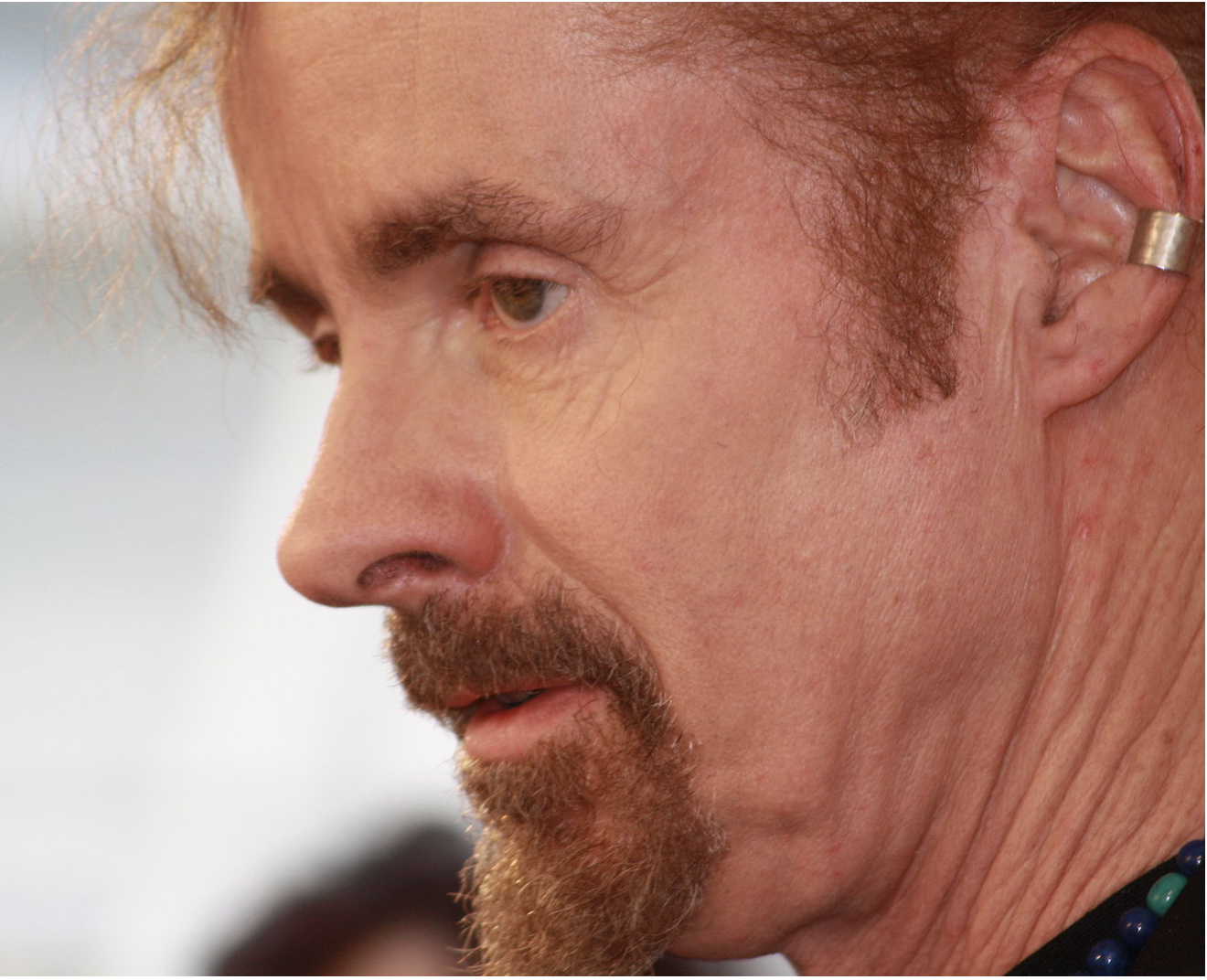December 2
Kristin Lems

On this date in 1950, folksinger and songwriter Kristin Lems was born to an acclaimed concert pianist and a Dutch immigrant father. She grew up in Evanston, Illinois. She was a National Merit Scholar and a Fulbright Scholar and has earned a Ph.D. Accompanying herself on guitar, Lems became the troubadour at 1970s rallies for the Equal Rights Amendment and women’s rights, also writing topical songs on many progressive issues, such as safe energy, peace and racial equality.
She has shared the stage with two presidential first ladies, Maya Angelou, Jacques Cousteau, Pete Seeger, Malvina Reynolds, Holly Near, Peter, Paul and Mary and many others. Gloria Steinem called her “a one-woman argument against the notion that the women’s movement doesn’t have a sense of humor.” She has traveled widely and also performs in Farsi (Persian). Lem’s albums include “Upbeat!” and “Oh Mama — plus!” with many of her early hits. She sings an original song on “The Best of Broadside,” a CD anthology issued by the Smithsonian/Folkways label.
Lems also appeared on FFRF’s first musical album, “My Thoughts Are Free,” with FFRF Co-President Dan Barker. She has been named a “Woman of Illinois Repute,” Humanist Heroine of the American Humanist Association and an FFRF Freethought Heroine. She and Barker sing together on this recording of the freethought anthem “Die Gedanken Sind Frei.” It’s included on Barker’s album “Friendly Neighborhood Atheist.”
PHOTO: Lems on FFRF’s “Freethought Matters” in February 2019.
Days of the Theocracy
First they fight abortion,
Birth control is next,
Then comes sex if you’re not married,
Finally, out goes sex.
Put the prayers back in the schools,
Install parochiaid,
Allow for corporal punishment,
And then you’ve got it made!Chorus:
We’re going back, back
To the good old days,
When men were really men
And women knew their place;
Back, back a couple of centuries,
And welcome back the days
Of the theocracy!The family is so holy
There must be no divorce.
And if a wife is not content,
She must adjust, of course.
And if he’s forced to beat her
It’s all for her own good;
She must know what her limits are
As any woman should!Chorus:
The next to go is daycare,
It’s all a commie plot!
What could be more fulfilling
Than a child, wanted or not?
The woman’s work is housework–
God wanted it that way!
A salaried job degrades her, since
She never works for pay!— Kristin Lems. (c) 1979 Keline Ding Music (BMI). All rights reserved. Used by permission. Special courtesy Kristin Lems from her album "In the Out Door."
T.C. Boyle

On this date in 1948, writer Thomas John Boyle was born in Peekskill, N.Y., to working-class parents, both of whom died relatively young from alcohol-related conditions but were loving, supportive parents. He changed his middle name to Coraghessan when he was 17 after an ancestor. He started playing in a rock band and using heroin until a friend’s overdose helped convince him to stop. He earned his B.A. from the State University of New York-Potsdam in English and history in 1968 and taught high school at his alma mater. He received his M.F.A and Ph.D. in 19th-century British literature from the University of Iowa, also serving as fiction editor of the Iowa Review.
He joined the faculty of the University of Southern California in 1978 as an assistant professor of creative writing. A year later, his first collection of short stories, The Descent of Man, appeared in print, followed by the novel Water Music in 1981. The novel Budding Prospects: A Pastoral was published in 1984, followed by a volume of short fiction, Greasy Lake and Other Stories in 1985 and World’s End, which received the PEN/Faulkner Award for best novel of 1987. Another collection, If the River Was Whiskey, appeared in 1990, followed a year later by the novel East Is East and The Road to Wellville in 1993.
The Road to Wellville is a fictional portrait of two real-life brothers, the Kelloggs of Battle Creek, Michigan. It was a movie with the same name in 1994. Some of his other novels are The Tortilla Curtain (1995), A Friend of the Earth (2000), The Inner Circle (2004), which presented a fictional portrayal of sexual-behavior scientist Dr. Alfred Kinsey, and The Harder They Come (2015).
Common themes of life and death arise in Boyle’s work. He writes a lot about the conflict between scientific and spiritual points of view. His novel, When The Killing’s Done (2011), opens with an excerpt from the Book of Genesis which suggests that humans have sovereignty over all other animals. The story follows a couple who both consider themselves vegetarians but disagree on whether all life is sacred and why.
In the preface to T.C. Boyle Stories II (2013), he wrote: “Darwin and earth science came tumbling into my consciousness around then [8th grade], and I told my mother that I could no longer believe in the Roman Catholic doctrine that had propelled us to church for as long as I could remember. To her credit, patient woman, she set me free from all that, and I suppose I’ve been looking for something to replace it ever since.” What he eventually found? “Art and nature, the twin deities that sustained Wordsworth and Whitman and all the others whose experience became too complicated for received faith to contain it.”
Boyle married Karen Kvashay in 1974. They have a daughter, Kerrie, and two sons, Milo and Spencer.
PHOTO: Boyle at the 2009 Leipzig Book Fair; Amrei-Marie photo under CC. 3.0.
"Many people in our society — and I'm one of them — have given up religion for science, because science is demonstrable. I can drop that grape on the ground and know damn well it will adhere to the law of gravity. But we don't know what we're doing here, and it's utterly depressing."
— Boyle interview, Pacific Standard magazine (March 25, 2011)
